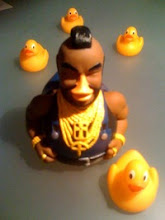We arrived in Yekaterinburg 5 hours after we left Perm, on Thursday evening. It proved to be a pain in the arse getting to the youth hostel. We asked a number of people the direction of a certain bus that the hostel said would take us there, and everyone gave us conflicting information, so we ended up walking in the general direction, then talking a tram from a place we knew would take us most of the way there.
The hostel was very interesting, it was basically a soviet era flat with two bunks in the living room, and one bunk in the bedroom. The kitchen and bathroom definitely reminded us of what this period may have looked like (bathroom picture). A cupboard built into the kitchen wall. Sideboards filled with crockery (somewhat similar to Maria’s in Vilnius). Different bits of furniture that didn’t fit together properly.
We were there alone, as there were no other guests, and Katia (the receptionist?) stayed somewhere else. That night, I tried plugging a light into a socket. Crack! With a large flash of light, I pulled my hand away. My forefinger and thumb were completely charred, but luckily I hadn’t been electrocuted. Soviet-era electrics!
Also, now I know where all the ‘holes’ from our toilet rolls go:
Katia, the person who was looking after the hostel was very friendly. She gave us an intro into the town, showed us the sights on a map, and answered all our questions. Audrey spent quite a while as ever trying to get the meaning of new Russian words, and Katia was very impressed by her enthusiasm for the language (luckily her English was very good, so that she could explain the meanings).
The town itself didn’t have too much going on. The central part was nice, with some nice architecture and a river running through it. It proved to be Moscow and St. Petersburg’s equal in terms of dust/pollution. At time is was difficult to walk on the street when a wind was whipping up.
We visited the Romanov memorial, commemorating the place where the royal family had been killed in 1918. We pondered why they would have be canonised by the Russian Orthodox Church, as plenty of people have been killed wrongly and not had anything bestowed on them. I’ve heard they were a ‘nice’ family, but Nicolas II himself is mainly known for being a weak ruler who couldn’t command his men properly in war (thereby instigating the revolution against the status quo and sealing his own fate).
The other thing of note was the Afgan memorial (see picture). It shows a statue of an exhausted soldier, sitting on the ground. I found it very poignant, and probably showed the fatigue that the general Russian populace felt with the country continuously going to war. Around the monument it had the name of all the wars that Russia entered in the 20th century, written in Cyrillic, but I managed to decipher most of them. The sheer amount of them amazed me. Angola, Mozambique, Japan, Moldova, Czechoslovakia, Abkazia, the list went on, as well as the well known ones (Vietnam, Korea etc.). It didn't include the longest running of them all, the Cold war, but between the lines you could read that a lot of those mentioned were proxies of that war.
On Saturday morning, it was labour day. There was a march through the centre of town by trade unions, followed by a march by what is left of the communist party. It seemed to be made up mainly of old people, with a smattering of youth, probably due to hereditary beliefs. One old lady carried a picture of Stalin.
That afternoon, we quizzed Katia on some of her views on history. She didn’t have very strong views about politics or history, but did relay some of the stuff that she had learned at school. Stalin in not seen in the same realms as Hitler, but simply as a flawed leader of the country ("Well... he has made mistakes, but we respect him as a strong leader who had the hard job of ruling such a large country!"), whereas in Western thinking they are portrayed (along with Pol Pot and Chairman Mao) as being the monsters of the 20th century.
Also, Trotsky is still viewed as a ‘bad person’ (although Katia has forgotten the reason why) , whereas we see him somewhat more sympathetically. He is the only key figure in Soviet history not to have been rehabilitated. Katia said we could e-mail her any questions we had, and either her or her dad (who was very interested in these things) would send us reply, so we plan to take her up on that offer.
Also, we’d both begun reading Colin Thurbron’s In Siberia. It was proving to be a very good read, giving details of the history of the vast place along with interesting encounters with people who lived there, I would recommend it to anyone who wants to get a better understanding of the place.
We left Yekaterinburg at 20:01 that evening.






0 comments:
Post a Comment